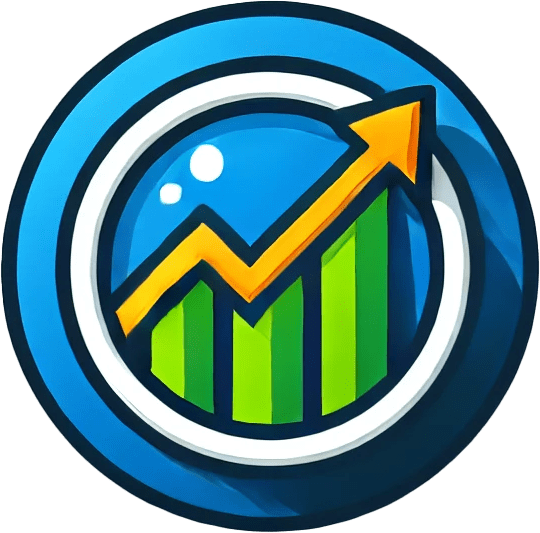
Freelance Local SEO Services
I provide a range of local SEO services for small to medium-sized local service businesses, helping you achieve better online visibility and generate more sales.
What sets me apart from other similar service providers?
Why should you use me?
As a freelance consultant, I can offer either a one-off service or work on a monthly retainer to provide more long-term support to you and your business.
I specialise in small to medium sized, local business support and tailor my services to suit your budget.
What Can I Offer You?
The purpose of a website audit is determine your site’s overall SEO health status and identify technical issues, plus any on-page SEO opportunities. The audit is completely free of charge and provides recommendations for improvements where possible. There is no obligation for you to use my services further if you do not wish to.
If you subsequently decide to engage my services, I will provide a complete breakdown of your entire website in a PDF report which will detail all relevant SEO required improvements for your site.
Contact me to request this service.
Identifying relevant keywords for your business target audience is crucial because it allows you to tailor your online content to the exact language and search terms they use. This significantly increases the chances of your website appearing in search results, drives more targeted traffic to your site, and ultimately reaches the right customers with the information they are actively looking for.
Main reasons why relevant keywords are essential:
- Better Search Engine Visibility:
- By incorporating keywords your target audience searches for, you improve your website’s ranking on search engine results pages (SERPs), making it more likely for potential customers to find you.
- Targeted Traffic:
- Using relevant keywords ensures that the people who find your website are genuinely interested in your products or services, leading to higher-quality leads and conversions.
- Improved Content Relevance:
- Understanding your audience’s keywords helps you create content that directly addresses their needs and questions, leading to higher engagement and satisfaction.
- Insight into User Intent:
- Analysing keywords allows you to understand the “search intent” behind queries, whether users are looking for information, comparing options, or ready to purchase. This allows you to craft content that aligns with their needs at each stage.
- Competitive Analysis:
- By researching the keywords your competitors target, you can identify opportunities to differentiate your content and capture market share.
Optimising meta tags, headers, content, and images is crucial for better search engine visibility. It provides search engines with clear information about your web page content and relevance, allowing them to rank your site higher in search results. This leads to increased organic traffic and discoverability by potential users.
Why optimisation is important:
Better understanding for search engines:
- Using relevant keywords in meta descriptions, title tags, headers, and image alt text gives search engines a better understanding of your page’s content, making it more likely to show up for related searches.
Improved click-through rate:
- Well-written meta descriptions that accurately summarise your content can entice users to click on your link from the search results page.
Enhanced user experience:
- Properly structured headers and content with relevant keywords improve readability and navigation for users, leading to a better overall experience on your site.
Accessibility for visually impaired users:
- Image alt text allows screen readers to describe an image’s content, improving its accessibility for people with visual impairments.
Specific benefits of optimising each element:
Meta Tags:
- Title Tags: The most visible part of your search result, so using relevant keywords is essential.
- Meta Descriptions: A brief summary of your page content to attract clicks.
Headers (H1, H2, H3):
- Content hierarchy: Indicates the structure of your content, helping search engines understand the importance of different sections.
- Keyword placement: Include relevant keywords in header tags to signal the topic of each section.
Content:
- Keyword density: Incorporate relevant keywords naturally throughout your content.
- Quality content: Create valuable and informative content that users will engage with.
Images:
- Alt Text: Provide descriptive text for each image so search engines can understand its content.
SEO-optimised content creation and/or refinement of existing content where necessary, including blogs, articles, and landing pages which is crucial for several reasons:
- Improves Search Engine Rankings: Well-optimised content helps search engines understand your website, making it more likely to appear higher in search results, and increases your visibility to potential customers searching for related topics.
- Drives Organic Traffic: Optimised content attracts more organic (unpaid) traffic by targeting relevant keywords and addressing user intent, reducing reliance on paid advertising.
- Enhances User Experience: Good SEO isn’t just about keywords. It also involves improving readability, structure, and relevance, which keeps visitors engaged longer and reduces bounce rates, which can further boost rankings.
- Builds Authority and Trust: High-quality, informative content positions your business as an authority in your niche, building trust with your audience and increasing the likelihood of conversions.
- Supports Other Marketing Channels: Optimised content can be repurposed for social media, email marketing, and other campaigns, maximising its value and reach.
- Keeps Your Site Competitive: Regularly updating and refining content ensures your site stays current with evolving search engine algorithms and keeps you ahead of competitors.
Generative Engine Optimisation (GEO) is traditional SEO’s more personable, AI-fluent cousin.
Instead of just optimising for keywords and backlinks, GEO involves the crafting of conversations that AI search engines like ChatGPT and Google Bard can easily understand and share.
GEO focuses on creating content that feels natural and directly addresses what users are actually seeking, packaging information with semantic relevance and structured data that helps AI assistants serve it up at just the right moment.
This evolving approach improves content visibility and creates genuinely better experiences for users who interact with AI search tools, giving your business a meaningful edge in a world where more and more people are turning to AI for answers rather than scrolling through traditional search results.
I provide extensive technical SEO which will improve backend issues such as site speed, mobile-friendliness, crawl errors.
Technical SEO is vital because it ensures your website is structured correctly and optimised for search engines to crawl, index, and rank your content effectively.
- Improves Crawlability and Indexing: Search engines use bots to crawl websites. If your site isn’t technically optimised, these bots can struggle to access or index your content, meaning your pages won’t appear in search results.
- Enhances Site Speed and Performance: Fast-loading websites provide a better user experience and are favoured by search engines like Google. Technical SEO focuses on optimising page load times, which can improve rankings and reduce bounce rates.
- Ensures Mobile-Friendliness: With most web traffic coming from mobile devices, search engines prioritise mobile-optimised sites. Technical SEO ensures your website is responsive and performs well across all devices.
- Fixes Site Errors: Issues like broken links, duplicate content, or improper redirects can harm your SEO. Technical SEO identifies and resolves these problems, ensuring your site runs smoothly.
- Optimizes Site Architecture: A clear, logical structure with clean URLs and proper internal linking helps search engines understand your site better, which can boost rankings for key pages.
- Supports Structured Data: Implementing schema markup through technical SEO helps search engines display rich snippets (like star ratings or product details) in search results, which can increase click-through rates.
Pillar topics are comprehensive subject pages.
Cluster content consists of interlinked subtopics that can be posted as pages or blog posts, or both, and provide detailed insights, enhancing authority and search visibility.
GBP management (Google Business Profile management) is essential because it significantly improves a business’s local search visibility on Google Maps and in general searches, allowing potential customers to easily find accurate information about your company, leading to increased customer engagement and ultimately driving more traffic and sales, especially for local businesses; it’s a cost-effective way to enhance online presence and reputation through features like review management, photo updates, and business information accuracy
Local citation building is the process of creating and managing online mentions of a business’s name, address, and phone number (NAP) on various directories and websites, essentially acting as digital “business cards” that signal to search engines the legitimacy and location of a business, significantly impacting local search rankings and visibility for local customers; it’s important because it helps establish credibility and trust with search engines, making it more likely for your business to appear in relevant local search results.
- What it involves:
- Listing your business information on various online platforms like Yelp, Google My Business, Yellow Pages, industry-specific directories, and social media profiles.
- Why it’s important:
- Search engine ranking: Consistent and accurate NAP across multiple platforms signals to search engines that your business is real and trustworthy, improving your local search ranking.
- Customer discovery: When people search for local businesses, having your information readily available in directories makes it easier for them to find you.
- Brand awareness: By appearing on various online platforms, you increase your business’s visibility and reach potential customers.
Continual monitoring, optimisation, and detailed reports on SEO performance.
Setting up and managing tools like Google Analytics and Search Console to provide analytics and performance tracking.
How can all of this benefit your business?
Optimising your online presence, including your website, Google Business Profile, and links in local directories, can significantly improve your visibility in local search results.
